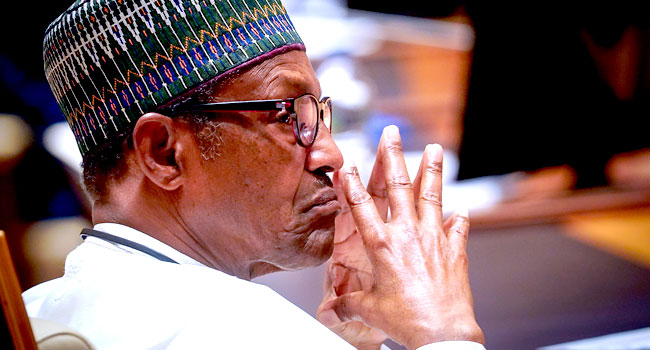- BoI’s loans not received
- Power supply worse than ever
- Covid-19 pounding, ravaging industries with more to shut down
- Advises FG to look to Vision 20: 2040
Manufacturers Association of Nigeria (MAN), expected to be the nation’s enabler for industrial growth, says more massive unemployment looms across the country, as the federal government’s much-touted manufacturing sector bailout is yet to reach operators let alone quicken the sector.
MAN also lamented the failure of Nigeria to realize its Vision 20: 2020 economic growth programme in which the country planned to grow exponentially to play among the world’s top twenty economies by 2020. For MAN, regional chapter in Rivers/Bayelsa, this is a sad taste in the mouth; and another mis-step.
The World Bank and IMF have predicted that Nigeria’s economy would experience a 3.5 percent shrink and throw up about 49 million job losses in 2020, due to Covid-19 pandemic. Only recently, the World Food Programme listed Nigeria among 27 countries in the world that would experience severe food shortages.
To mitigate these, Adawari MacPepple, chairman of MAN regional chapter in Rivers/Bayelsa states, at the end of the association’s 36th annual general meeting in Port Harcourt, told Business A.M. in an interview that their challenges of inadequate public power supply, decrepit transportation system, lack or inadequate government sector-specific incentives, have remained largely unattended-to over the years. “Some of these challenges should have been touched a little bit, some ought to have been resolved, and some clearly settled. But we are where we have been, and today, we’re even worse-off, no thanks to Covid-19,” MacPepple said.
He belittled Bank of Industry’s (BoI), a sector-specific development financial institution established to tackle critical issues faced by manufacturers and industrialists over its post Covid-19 intervention fund. “It is quite disheartening for our MAN members to be faced with rather unreasonable conditionalities by BoI to provide funding to us. A situation where BoI asks a manufacturer to provide his company’s certificate of occupancy, collaterals, etc. where would they get such documents when most of them have logged such documents with the banks upon acquiring loans?” He asked.
“I would expect the federal government to look at those companies that have been paying them tax all these years. The government through its revenue agency (FIRS) has record of all registered companies. That is the surest way to know which company is a good corporate citizen. So, the government through BoI should at this time reciprocate to the companies that pay taxes, and provide them with intervention funds to mitigate the ravaging effects of Covid-19,” he said.
None of the Rivers/Bayelsa MAN chapter has yet received the BoI intervention fund, though they applied through the MAN national chapter, he complained.
He announced that Covid-19 had particularly adversely affected manufacturers in the oil region in the areas of sourcing for raw materials, coupled with evidently poor transportation infrastructure, especially roads and rails.
According to him, more manufacturing companies are likely to shut down soon, going by the current situation. Power supply is worse than ever. We spend more money on fuelling. Most of us have shut down many operations. Even the ones left are witnessing severe production crises, he said.
MacPepple said the MAN Rivers/Bayelsa chapter has been urging the Rivers State government to establish a new industrial park that is equipped with ancillary infrastructure to support manufacturing. The industrial space at Trans-Amadi (which was created in the early 1960s) has outlived its usefulness. Today, its filled with hotels, commercial banks and other business outfits and residential houses. It’s no longer an industrial area.
He appealed to federal and state governments to provide tax relief and low interest loans to manufacturers as part of measures to mitigate the impact of Covid-19 in the manufacturing sector of the economy. “Covid-19 has impacted negatively on the manufacturing sector, due to lack of access to raw materials, as the countries supplying raw materials are either shut down, not producing or are forced to close due to the ravaging effects of the pandemic.”
He said despite the FG claims on provision of electricity throughout the period of Covid-19, many of MAN members are unable to operate due to poor electricity supply and often times non-availability of power supply. Every economy is driven by the private sector. When industries are given the right environment to operate, they attain at optimal levels, employing more people. This would provide a spiral effect on the economy. Manufacturers, and indeed, the private sector, are the appropriate drivers of the economy, not the public sector. Today, many youths finish school, and flock the government offices looking for job. In the 1970s and 1980s, graduates come to Trans-Amadi Industrial Layout to look for jobs, because they are creators of jobs, not government. today, in Nigeria, the system has created the impression that public is the driver of the economy, which is highly erroneous,” MacPepple told Business A.M.
On the now aborted Vision 20: 2020, the MAN chief advised the Nigerian government to go back and look at basic infrastructure, beginning with power supply and transportation with a view to making them available to enable the manufacturing sector boom, before talking about any vision. “Since we have missed it completely on Vision 20: 2020, the federal government and the states should maybe be considering Vision 20: 2040,” he said.
Some other manufacturers who attended the MAN annual general meeting also complained of lack of investors in the manufacturing sector which has also contributed to the rising unemployment in Nigeria. And that more workers would be laid off their jobs in the coming months up on until next year.
The president of MAN, Mansur Ahmed who joined the meeting through virtual online participation, also lamented that manufactures in the zone do not have access to intervention funds of the bank of industry which forces manufacturers to borrow from commercial banks but end up not able to pay back the loans and folding up.








